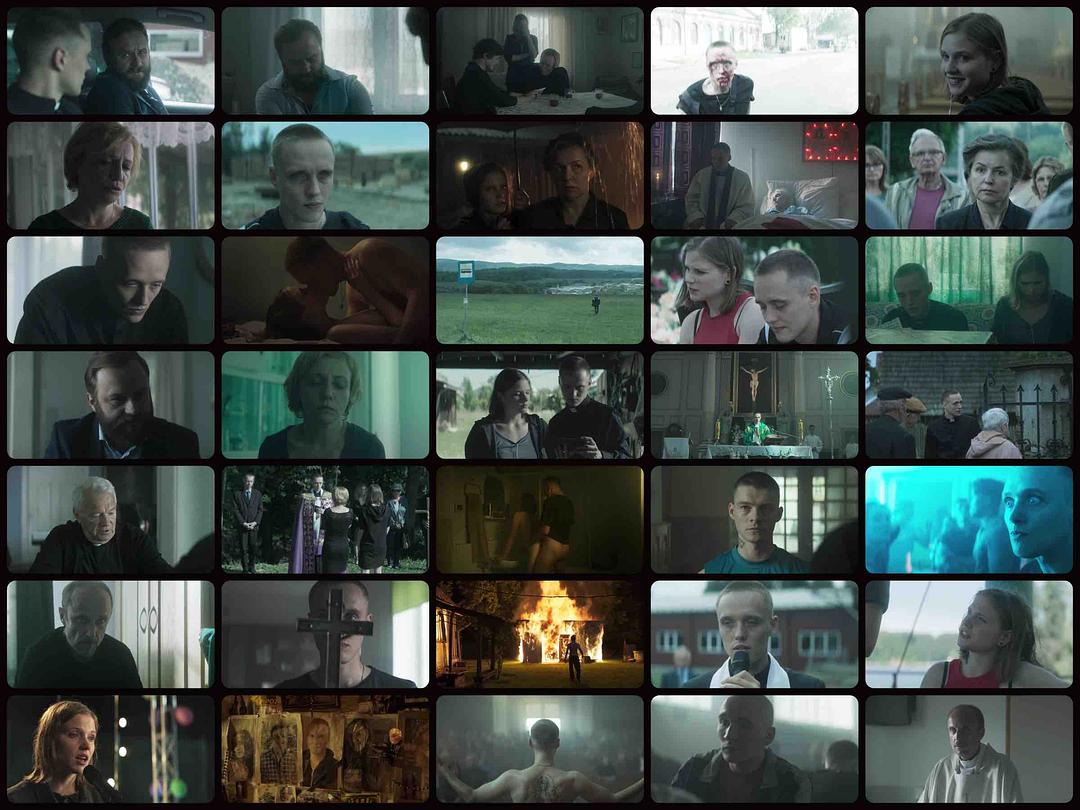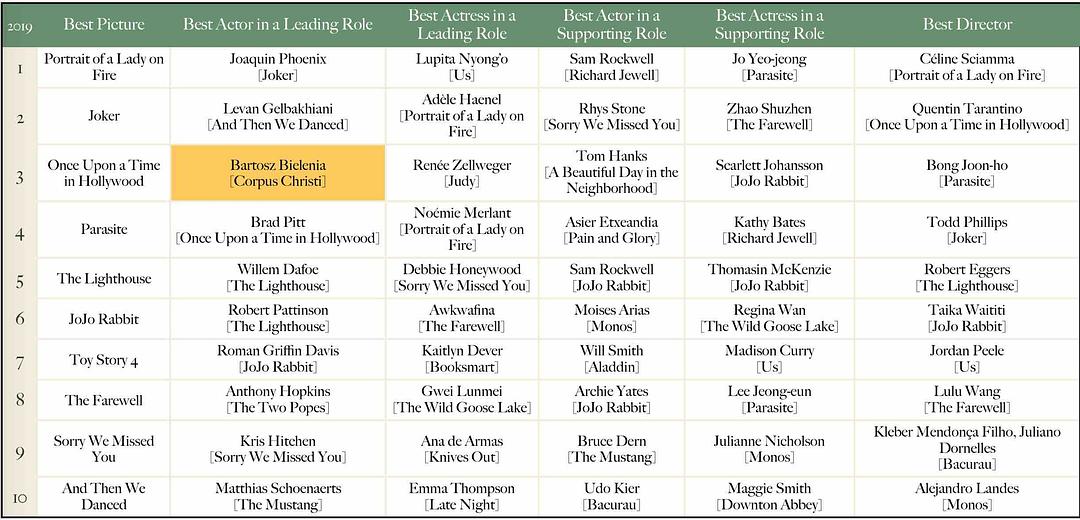他他 • 基督圣体:[Film Review] Corpus Christi (2019) 7.4/10

Orthodox Christianity is allusively mocked in Polish filmmaker Jan Komasa’s third feature CORPUS CHRISTI, in which, Daniel (Bielenia), a young offender released on parole from a youth detention center, takes on the duty as a locum vicar in a sleepy town, under the pretense that he is a priest thanks to the clerical collar he carries with him. That premise is a tad far-fetched, why no one bothers to check the identification of this soi-disant new priest? Especially more condemning is the old vicar (Wardejn), a skeptical lush who has already lost his discernment and is more than willing to delegate his daily obligation to the new Daniel who purports to be Father Tomasz, named after the detention center chaplain (Simlat), with whom Daniel communicates his religious enlightenment, but is dismayed when being informed by the latter that he couldn’t enter a seminary because of his second-degree murder offense.
Basically, the film floats the unconventional idea what happens if a reformed murderer, acquired with substantial spiritual acumen, is more suitable to the hallowed vocation than the jaded, ordained ones, and CORPUS CHRISTI makes an eloquent and compelling case of it, apart from a vicar’s onus in the ordinances and confessionals during which he gives a more than capable impression, Daniel also tackles the aftermath of a car accident which resulted in a casualty of 7, 6 reveling youngsters one car and a lone driver in another, so which party is accountable? The answer is more complicated than what we bargain for.
The healing process of purging the caldron of anger, grief and guilt out of a handful of small-town parishioners pans out with step-by-step lucidity and the ultimate embrace of forgiveness and agape is a hard-won reward but Komasa rarely overreaches himself into making a schmaltzy or homily fest out of it, the film’s forte is in its clear-eyed, committed presentation of a none-too-credible story, and piling on the obvious and the understated (the tantalizing sexual consummation, a blackmailing juvie belong to the former and the solemn Last Rites, a tacit love interest the latter), CORPUS CHRISTI roundly puts Komasa’s name on the map as a filmmaker very nearly edging his artistic maturity, not to mention it has obtained an Oscar nomination against fierce competition.
Bielenia grittily shoulders on through Daniel’s trials and tribulations with undiluted determination and fortitude, whose gaunt physique and angular lineaments enable him to transmute from a skeletal crackhead to an open-faced devotee at a clip. Vim and vigor, plus fire in his belly, his performance must be cited among one of the year’s best. As regards the supporting cast,the majority of which is dished out with more rigid and unimaginative characters (a power-taunting mayor, an impressionable girl who eventually comes across sexually, etc.), only Aleksandra Konieczna, as the female sexton Lidia, a bereft mother, stands out, even just by projecting her disapproving glare on the sidelines.
Shot in a typical Eastern bloc bleakness, mixed with a misty ambience of the church suggesting the inscrutability of the holy presence, and climaxed with a no-nonsense, blood-spattered coda, CORPUS CHRISTImakes for a gripping viewing with an optimum leading performance and brings a new, meritocratic perspective on our modern-day Christianity, that is its be-all and end-all.
referential entries: Pawel Pawlikowski’s COLD WAR (2018, 8.4/10); François Ozon’s BY THE GRACE OF GOD (2018, 7.2/10).

基督圣体Boże Ciało(2019)
又名:流氓神父(港) / 另类神父(台) / 另类神父代理人(台) / Corpus Christi / Boze Cialo / La Communion
上映日期:2019-08-29(威尼斯电影节)片长:116分钟
主演:巴托斯·比莱尼亚 / 亚历山德拉·康涅兹娜 / 伊莱扎·莱辛姆波 / 托马斯·兹代克 / 芭芭拉·库尔扎伊 / 赖塞科·利希塔 / 泽兹斯拉乌·瓦尔德金 / 卢卡斯·辛拉特 / 安娜·比尔纳西克 / 莉迪亚·博加茨 / 马尔维娜·布莱奇 / 博格丹·布勒斯基 / 朱利叶斯·克尔扎斯托夫斯基 / 拉多斯瓦夫·丘西亚斯 / 马特乌斯·茨瓦托斯 / 安德烈·弗朗西克 / 海伦娜·诺罗维茨 / 达里乌斯·斯塔切夫斯基 / 玛尔塔·瓦尔代拉 / 托马斯·洛索 /
导演:扬·科马萨 / 编剧:马特兹·帕斯维克兹 Mateusz Pacewicz

